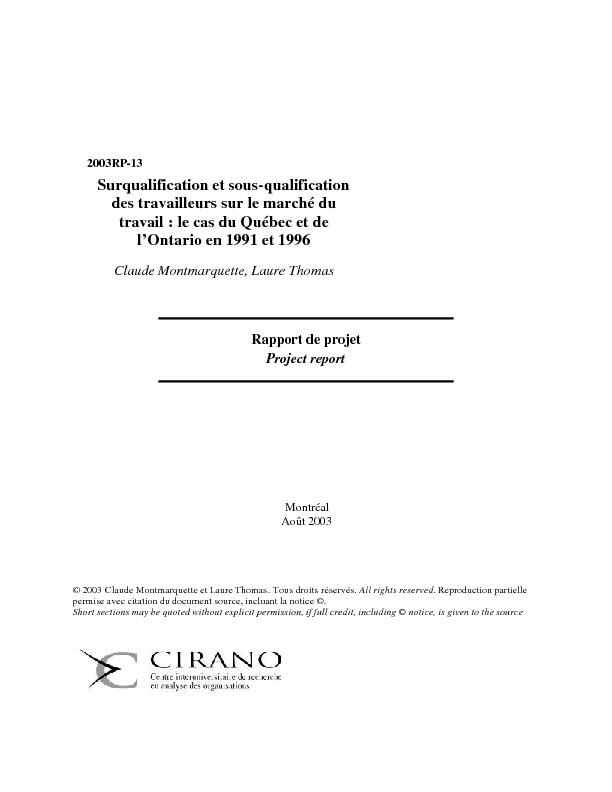Surqualification et sous-qualification des travailleurs sur le marché du travail : le cas du Québec et de l'Ontario en 1991 et 1996
This text investigates the causes of the noticeable difference between the education level reached by workers and the level of education required to do their job. This issue is important in order to appreciate the adequacy of the relationship between workplace requirements and the education system. It is observed that the over-qualified workers are usually younger workers. The older workers compensate for their formal lack of education by having more experience. The labor market in Ontario has a better adequacy than the one in Quebec. The outcome of over-qualification or under-qualification is real. Over-qualified individuals are paid more than people who have the proper education for their job. On the other hand, under-qualified individuals are usually paid less.
[ - ]




